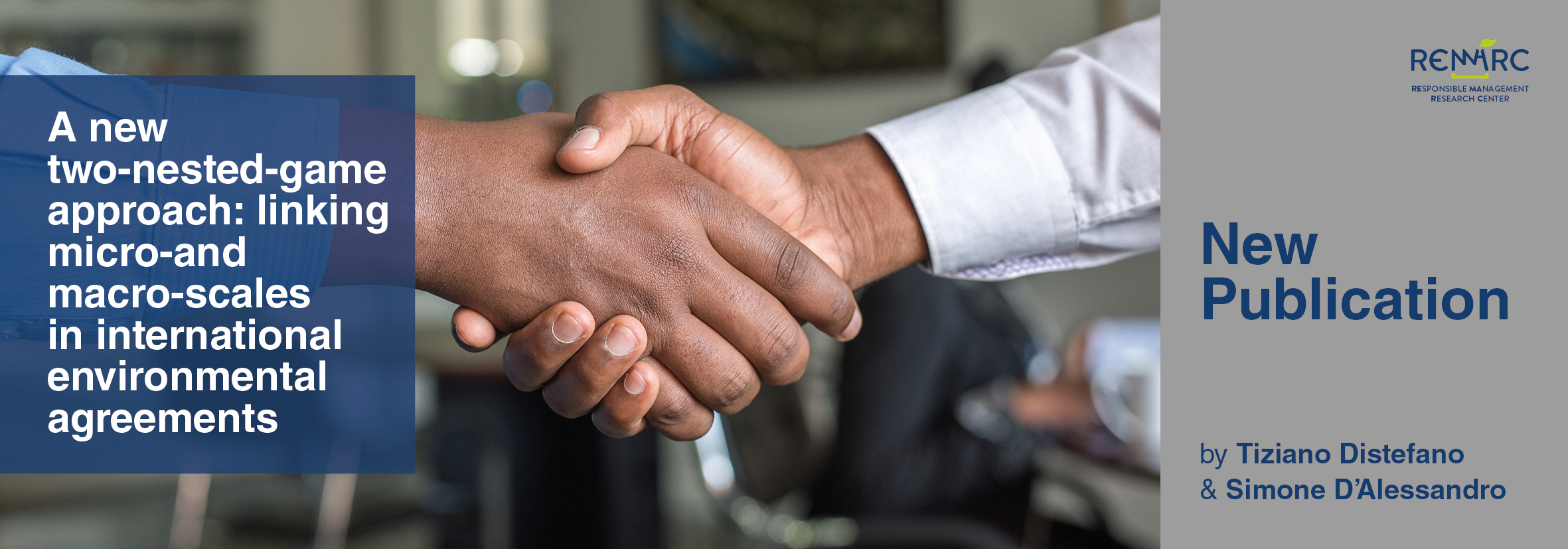New paper

A new working paper by REMARC researchers Simone D’Alessandro and Tiziano Distefano:
“A new two-nested-game approach: linking micro- and macro-scales in international environmental agreements.”
Abstract: This study investigates the effectiveness of international environmental agreements (IEAs) and how it might be affected by the development of pro-environmental behaviour among households and firms. We propose a new framework based on a two-nested-game approach composed by: (1) a one-shot game with two asymmetric countries that negotiate the international abatement target, and (2) an evolutionary game which describes the economic structure resulting from agents’ interactions. These two games are nested because the initial economic structure determines the welfare of each country, and thus the outcome of Game 1 which, in turn, is embedded in Game 2, modifies the agents’ pay-off and the economic structure thereof. Numerical simulation outcomes suggest three key messages. First, we find that global solutions do not automatically produce the expected effects irrespective of any free-riding assumption. Second, extreme climate risks might not lead to a high abatement target in the event of marked cross-country inequality. Third, adverse consumers’ environmental attitudes might hamper the success of an IEA. The above observations entail that governments should not simply impose environmental laws. Rather, top-down policies and bottom-up interventions should be coordinated; otherwise, they might fail if undertaken in isolation.
The article is available online here.



